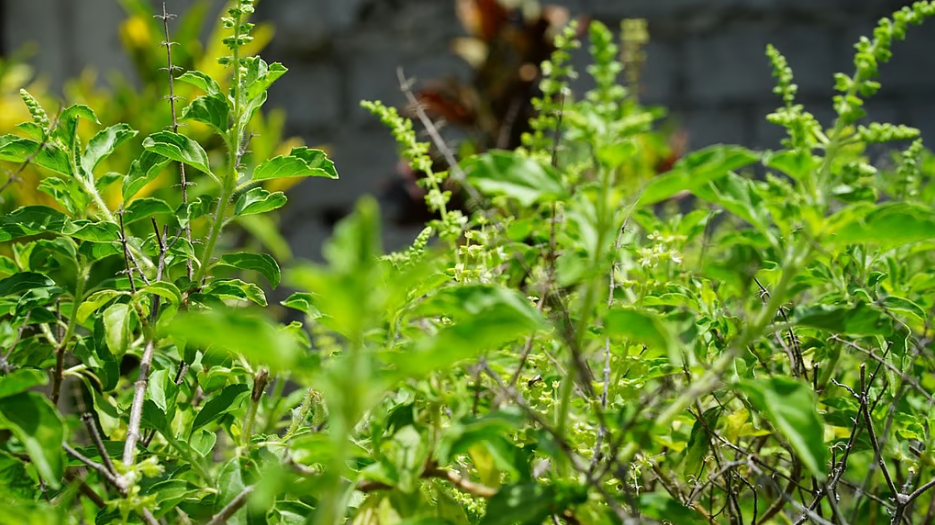In Sanatan Dharma, the tulsi plant is extremely valued. It is believed that this plant is very dear to lord Narayan. For this reason, the tulsi plant is considered extremely auspicious and sacred. The practice of worshipping the tulsi plant is common in almost all Hindu households. Hindu women pour water at the base of the tulsi plant and light a lamp there. According to the Puranas, tulsi is Narayan's wife, so it is believed that Narayan himself resides in the tulsi plant.
Generally, two types of tulsi plants are found. One of these is Ram tulsi, and the other is Shyam tulsi. Since tulsi is dear to Narayan, both types of tulsi plants have been named after Narayan's two avatars, Ram and Shyam, meaning Krishna. Many people have various doubts about which tulsi should be planted at home. Today, we will discuss these two types of tulsi plants to clear your doubts.
Ram tulsi plant leaves are green in color. It is believed that Ram tulsi is more dear to Shri Ramchandra. For this reason, it is called Ram tulsi. Ram tulsi leaves have a sweet taste. Planting a Ram tulsi plant at home is considered extremely auspicious. If there is a Ram tulsi plant at home, happiness and prosperity are maintained there. Ram tulsi leaves are used in worship.
Shyam tulsi plant leaves are dark green or purple in color. According to Hindu scriptures, the Shyam tulsi plant is extremely dear to Shri Krishna. Krishna's another name was Shyam. For this reason, this tulsi is called Shyam tulsi. Shyam tulsi plant leaves have a bitter taste. Shyam tulsi plant leaves are not used in worship.
Both Ram tulsi and Shyam tulsi plants are extremely auspicious to plant at home. However, since Ram tulsi leaves are used in worship, generally Ram tulsi plants are planted in households. If there is a Ram tulsi plant at home, the path to progress becomes smooth for the family members. To plant a tulsi plant at home, Thursday, Friday, and Saturday are the best days for planting tulsi plants. Planting tulsi plants on these days brings the blessings of Lakshmi and Narayan. However, never water the tulsi plant on Ekadashi tithi. Also, do not water the tulsi plant on eclipse days, Sundays, Mondays, and Wednesdays.











